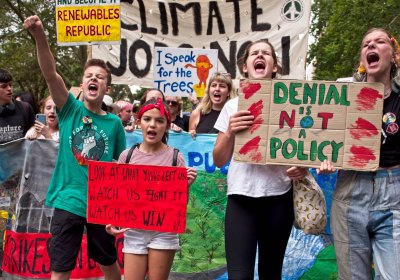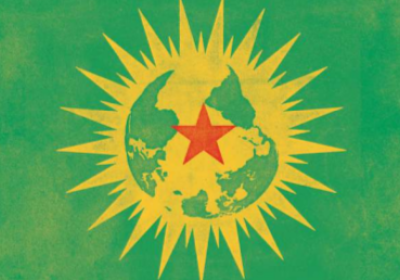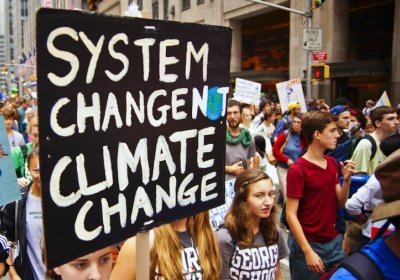Five studies, all published in the past six weeks, indicate that global heating is intensifying more rapidly than expected, writes Ian Angus, giving increased urgency to the fight for a safe climate future.
Ian Angus
Every degree of global warming will push a billion people out of the human survival zone, writes Ian Angus.
Climate and Captialism editor Ian Angus looks at six new books for ecosocialists.
Climate and Capitalism editor Ian Angus takes a look at eight new books of interest to ecosocialists.
limate and Capitalism editor Ian Angus takes a look at seven new titles for an ecosocialist bookshelf.
Environmental destruction isn’t driven by human nature or mistaken ideas. It is an inevitable consequence of a system built on capital accumulation argues Climate & Capitalism editor Ian Angus.
The red and green shelf is overflowing! Climate and Capitalism editor Ian Angus looks at nine important new books address topics ranging from ecosocialism and rising seas to trees, growth and global poverty.
Climate and Capitalism editor Ian Angus takes a look at six books that belong on the bookshelf of ecosocialists.
Climate and Capitalism editor Ian Angus takes a look at five new titles delving into crucial issues for ecosocialists.
***
On Fire: The Burning Case for a Green New Deal
By Naomi Klein
Simon & Schuster (in Canada: Knopf) 2019
Climate and Capitalism editor Ian Angus takes a look at five new books that belong on an ecosocialist bookshelf.
Climate and Capitalism editor Ian Angus looks at new books for green lefts on how the richest drive climate change; planning from below; the Scottish clearances; slime; and eco-socialism and practical utopias.
Bastani frequently quotes Marx, but his economics are Keynesian, his history is crude technological determinism, and his political program doesn’t go beyond social democratic reforms, writes Ian Angus.
- Previous page
- Page 4
- Next page











